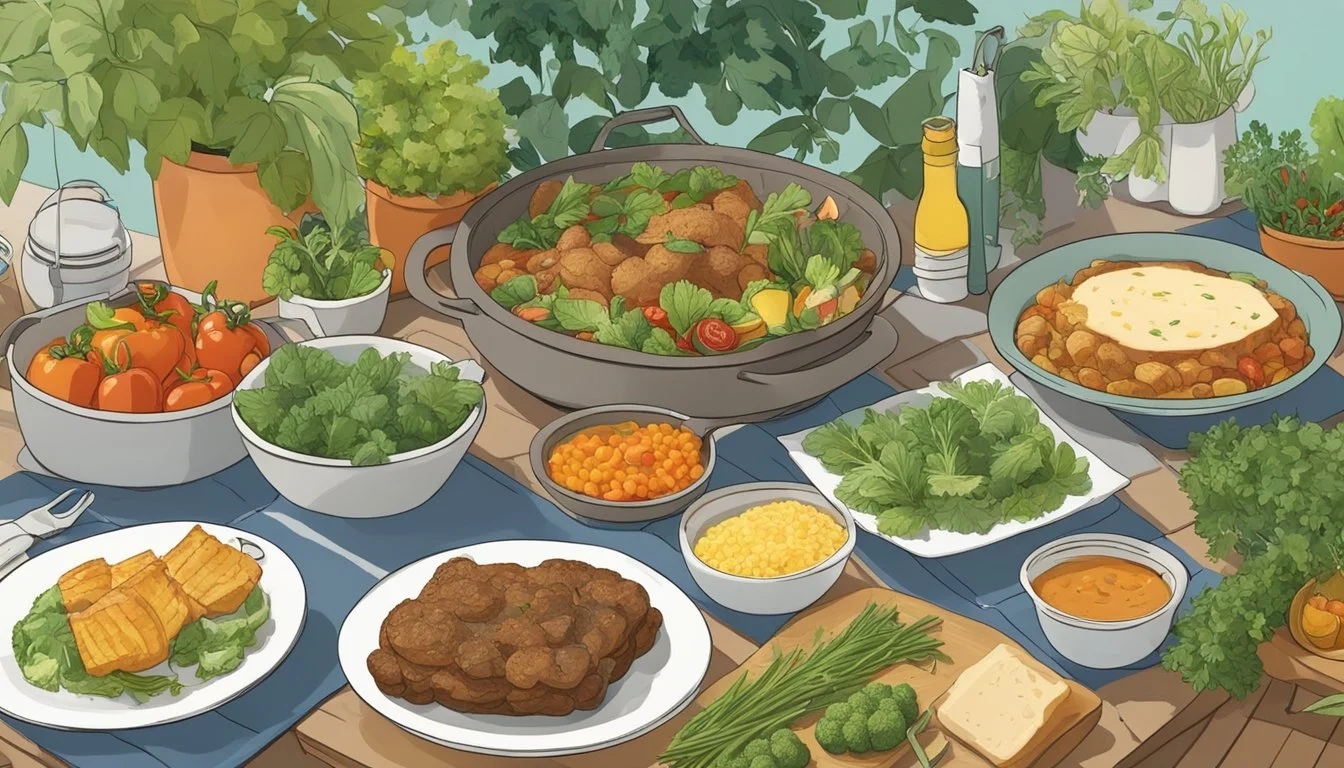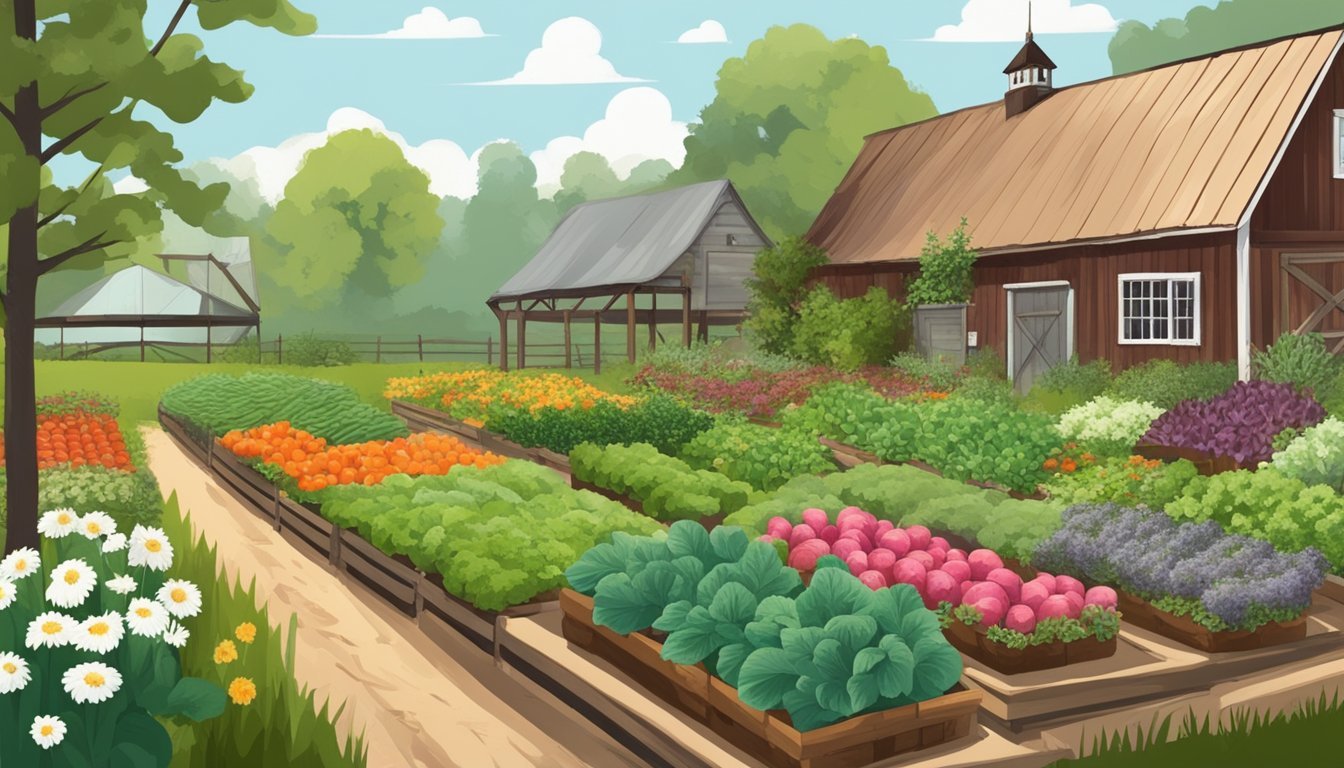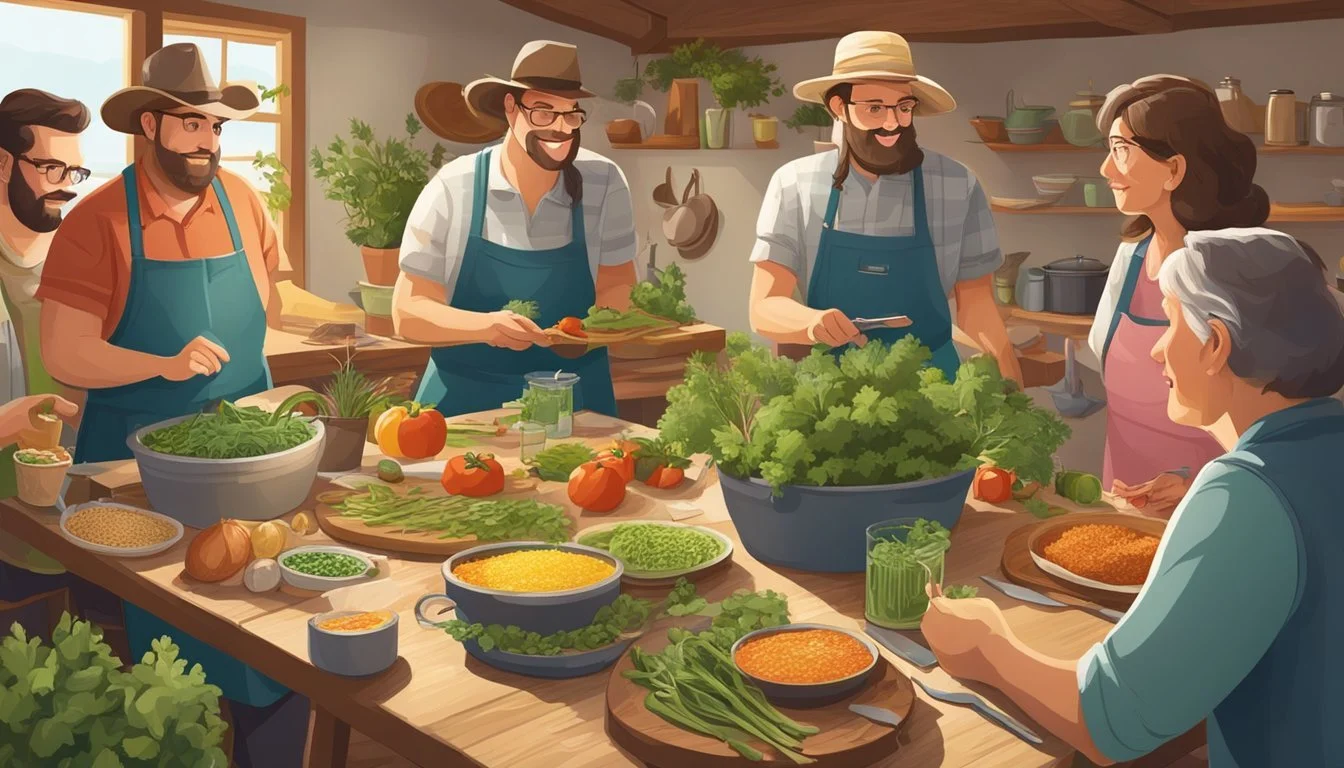German Texan Food and Gardening Workshops
Cultivating Cultural Cuisine and Gardens
Texas offers a unique tapestry of cultural heritage where the German influence is deeply interwoven into its social and culinary fabric. German Texans, an integral part of the state's cultural history, have been contributing to the local customs and traditions since the mid-19th century. The settlements of Fredericksburg and New Braunfels, founded by German pioneers, serve as prime examples of this hybrid culture where German tradition and Texan spirit coalesce, particularly evident in local cuisine and community activities.
Food is a vital part of this heritage, with German-Texan cuisine reflecting a blend of German culinary practices and Texan ingredients. This distinctive fare embodies the spirit of culinary fusion that occurred when German immigrants adapted their recipes to the local produce available in Texas. Signature dishes have evolved over time, becoming favorites among both locals and visitors with a taste for hearty, comforting flavors.
In conjunction with their food culture, gardening workshops emerged as venues for German Texans to share knowledge about cultivating local gardens that continue to honor their ancestral customs. These workshops not only teach gardening techniques suitable for the Texan climate but also focus on growing the types of plants that are relevant for traditional recipes, ensuring that the connection between German heritage and the Texan environment is maintained and passed down through generations.
Historical Context of German Texans
The history of German influence in Texas is a tapestry woven through migration, cultural impact, and festivals, reflecting a rich heritage that has shaped the state's identity.
Migration and Settlement Patterns
German immigrants began arriving in Texas during the early 19th century, drawn by the promise of land and economic opportunity. In the 1830s, towns like New Braunfels and Fredericksburg were founded by German settlers, who clustered in Central Texas, particularly in the Hill Country, transforming it into a center for German Texan culture. These settlers not only established themselves in rural areas but also left a substantial mark on cities such as San Antonio and Austin.
Influence on Texan Culture
German Texans introduced their traditions, language, and customs, enhancing the cultural fabric of the state. Their impact extends to various facets of life, including architecture, where German craftsmanship is evident in historic buildings throughout the Hill Country. The German influence has also permeated the culinary scene, with traditional German foods becoming a staple in Texan diets.
Festivals and Celebratory Events
Festivals are a cornerstone of German Texan heritage, with Wurstfest in New Braunfels serving as one of the most celebrated. This event, rooted in German tradition, showcases traditional foods, music, and crafts, attracting over 100,000 visitors annually. Other notable events include Oktoberfest and the multiple cultural activities held by German Texan societies that emphasize music, dance, and the German language, preserving and promoting the legacy of the early German immigrants.
German-Texan Culinary Traditions
German migration to Texas has deeply influenced the state's culinary landscape, creating a unique fusion where traditional German recipes blend with Texan flavors. This fusion is particularly evident in signature dishes, cooking techniques, and the distinct twist Germans brought to Texan BBQ.
Signature Dishes and Ingredients
German-Texan cuisine is a robust combination of hearty ingredients and flavors. Key dishes include:
Sausage: Variants such as bratwurst and kielbasa are commonplace, often using Texan meats.
Sauerkraut: This fermented cabbage is a traditional side, sometimes infused with local spices.
Schnitzel with Cream Gravy: A breaded cutlet served with a rich, creamy gravy adapted to Texan tastes.
Localized ingredients like paprika have been integrated into traditional meals, adding a Texan kick to German classics.
Cooking Techniques and Practices
German settlers brought with them a variety of cooking practices that have been passed down through generations:
Baking: German baking techniques have persevered, particularly in breads and pastries.
Food preparation: Methods like pickling and curing have been taken up within Texan cuisine.
These techniques not only survived but thrived, assimilating into the broader culinary traditions of Texas.
German Influence on Texan BBQ
The merging of German cooking methods with Texan barbecue has led to a distinctive food style:
Meat Smoking: Influenced by German smoking and curing techniques, Texan BBQ has developed its unique identity.
BBQ Sauce: Traditional German recipes have adapted, integrating local ingredients to create sauces that accompany smoked meats (What wine goes well with smoked meats?).
German customs have clearly left their mark on Texan BBQ, making it a cuisine that’s both familiar and distinctively Texan.
Gardening and Agriculture
In Texas, German traditions have melded with local agriculture, influencing techniques and crop cultivation. Gardening and agricultural practices reflect this heritage, focusing on adaptation and the growth of both German and native Texan crops.
German Horticultural Traditions
German settlers brought with them a wealth of horticultural knowledge, emphasizing efficiency and sustainability. The Horn Farm Center for Agricultural Education, with its 19th-century Summer Kitchen and PA German-style wood-fired Squirrel Tail oven, is a testament to this heritage. Here, traditional German techniques have been preserved and are now taught to modern-day enthusiasts seeking to connect with historical gardening practices.
Adaptation to Texan Climate
The translation of German gardening techniques to the Texan climate has required thoughtful adaptation. Workshops, like those offered by GROW North Texas, provide practical guidance for adjusting traditional methods to local conditions. For instance, their Drip Irrigation Workshop at Owenwood Farm and Neighbor Space educates on efficient water usage, a crucial adaptation in the often arid Texan environment.
Cultivation of German Crops in Texas
A variety of German crops are successfully cultivated in Texas, blending German agricultural heritage with Texan soil. Here are some key crops and methods:
Vegetables: Traditional German vegetables like cabbage and root veggies are cultivated using locally adapted methods.
Fruit: Apples and stone fruits, staples in German diets, are grown in Texan orchards with altered care to suit the intense Texas sun.
Grains: Wheat and barley, used in German breads and beers, are cultivated in Texas, with attention to planting times to avoid extreme weather.
The propagation of these crops, along with initiatives like Grow Garden Grow, reinforces the German influence on Texan agricultural practices and contributes to the diverse food landscape of the state.
Educational Programs and Workshops
Within the vibrant cultural landscape of German Texan communities, workshops serve to bridge the heritage of German cuisine (What Wine Pairs Perfectly With German Cuisine) and gardening traditions with modern practices. These programs offer not only practical skills but also a means to preserve and communicate a unique cultural identity.
German-Texan Food Workshops
Cooking Techniques and Heritage: Instructors specializing in German-Texan cuisine conduct workshops to educate participants on traditional cooking methods. These hands-on sessions often take place in historical settings, such as restored 19th-century kitchens, providing an immersive learning experience.
Skills Taught: Canning, baking in wood-fired ovens, and other preservation techniques.
Registration: Interested individuals should register in advance, as space is often limited.
Gardening Workshops and Community Support
Sustainable Practices and Community Gardens: Education in gardening is tailored to support community involvement, with workshops covering everything from starting a garden to maintaining it organically. Programs may include:
Mycology, teaching how to cultivate mushrooms.
Starting a community garden, providing a space for those without personal garden space to grow healthy food.
Resources and Registration:
Support: Local centers provide resources and support for implementing new gardening techniques.
Register: For many of these gardening workshops, advance registration is required and a fee may be associated.
Language and Cultural Communication
Language Education and German Heritage: Programs focused on the German language and cultural communication emphasize the importance of heritage preservation. These educational workshops facilitate:
Learning the German language in the context of garden and food education.
Cultural Connections:
Instructors: Educators often have expertise in both German culture and language, enabling them to convey nuanced cultural concepts effectively.
Support: They provide support for community members eager to connect or reconnect with their German heritage.
Register: Find program schedules and register for these cultural workshops through local heritage organizations and educational institutions.
Preservation and Promotion of German-Texan Heritage
The German-Texan Heritage Society (GTHS) plays a crucial role in protecting and sharing the rich German culture and heritage across Texas. From archiving historical records to hosting cultural events, the GTHS ensures the longevity of the German influence on Texan traditions.
Role of the German-Texan Heritage Society
The GTHS is dedicated to the preservation of German heritage in Texas. It supports cultural events including Oktoberfest, Maifest, and Christmas Markets, offering Texan residents the opportunity to engage with German traditions. The society also provides German language classes for both adults and children to promote linguistic heritage.
Cultural Events
Oktoberfest
Maifest
Christmas Market
Language Classes
Adult education
Children’s programs
Exhibits and Genealogical Research
Through exhibits and genealogy research services, the society aids individuals in connecting with their German ancestry. A library of resources is available for those interested in tracing their family histories, ensuring that personal connections to German Texan lineage are not lost.
Services Offered:
Access to historical documents
Assistance with genealogical research
Media and Publications
The GTHS is active in promoting German-Texan culture through various media and publications. This includes informational content that enlightens the public about the historical significance of German contributions to Texan society and the continued influence of German customs and cuisine in the region.
Informational Content:
Video series on German-Texan culinary heritage
Educational articles and newsletters







